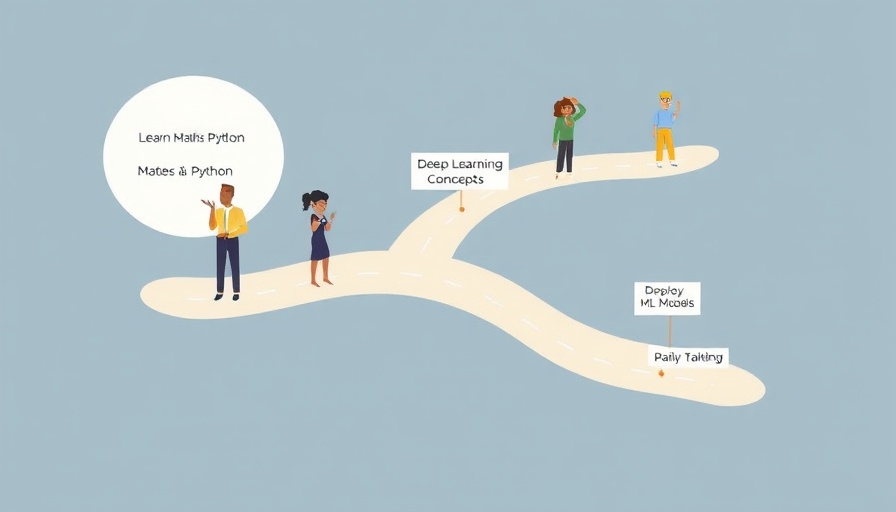
Understanding Machine Learning: A Transformation in Technology
Machine learning (ML) is not just a buzzword; it is an integral part of our daily lives. From the voice assistants that help us manage our schedules to sophisticated systems that assist doctors in diagnosing diseases, ML is driving significant advancements across various sectors. Industries like healthcare are using ML to provide tools that enhance decision-making, while the automotive sector is developing self-driving cars that promise to revolutionize transportation. Moreover, retail businesses leverage ML for personalized customer experiences, revolutionizing supply chain management through automated inventory systems.
The Explosive Growth of the Machine Learning Market
Forecasting the future of machine learning reveals an astounding trajectory— projected to soar from a market value of $14.91 billion in 2021 to around $302.62 billion by 2030 at an impressive CAGR of 38.1%. This meteoric rise reflects not only the technological progression but also the increasing demand for skilled professionals in the ML field. As we approach 2025, acquiring machine learning skills presents an opportunity for career development and exploration in one of the fastest-growing sectors of the tech industry.
Embarking on Your Machine Learning Journey
As enticing as the world of machine learning may be, many aspiring learners may feel overwhelmed when determining where to begin. The key to mastering ML in 2025 is to follow a clear roadmap, starting with foundational skills that pave the way for a deeper understanding of advanced concepts.
Step 1: Laying the Groundwork with Mathematics and Programming
Before delving into the intricacies of ML, grasping essential mathematical concepts and programming skills is crucial.
Core Mathematical Concepts
1. Linear Algebra: Understanding vectors, matrices, and operations on these entities is foundational for data manipulation in ML. Online resources like Khan Academy or targeted YouTube courses can be valuable.
2. Calculus: Familiarity with derivatives and gradients plays a significant role in optimizing algorithms. Various courses, such as those available on YouTube, provide a strong calculus foundation.
3. Probability and Statistics: Learning about key concepts such as probability distributions and hypothesis testing is essential for data analysis and interpretation in ML.
Programming Skills: Choosing Python
Among various programming languages, Python stands out as the most favored choice for ML practitioners. Its simplicity and vast library ecosystem make it ideal for rapid prototyping and development. Beginners are encouraged to start with Python through beginner-friendly courses.
The Journey Ahead: Exploring Specialized Knowledge
As you establish a strong foundation, expanding your knowledge into specialized topics such as deep learning, natural language processing, and computer vision will further enhance your expertise. Experiential learning through real-world projects not only solidifies understanding but also equips learners with the abilities employers seek.
Conclusion: Taking the First Step Towards Mastery
Mastering machine learning by 2025 is an attainable goal for those ready to invest time and effort into learning. The skills gained through this journey will not only prepare you for a promising career but also empower you to contribute to the many innovative applications of ML that are reshaping our world.
 Add Row
Add Row  Add
Add 
 Add Element
Add Element 


Write A Comment